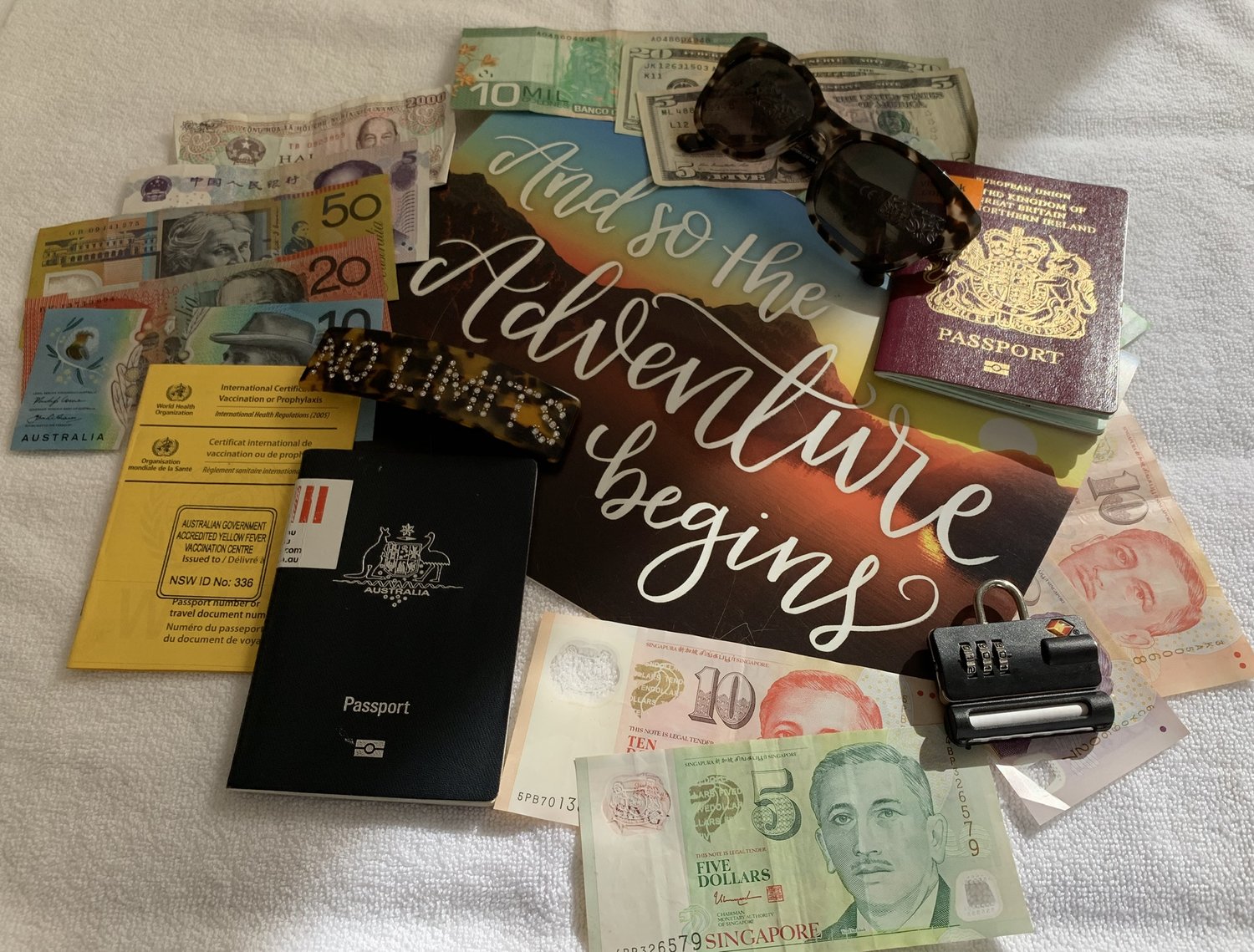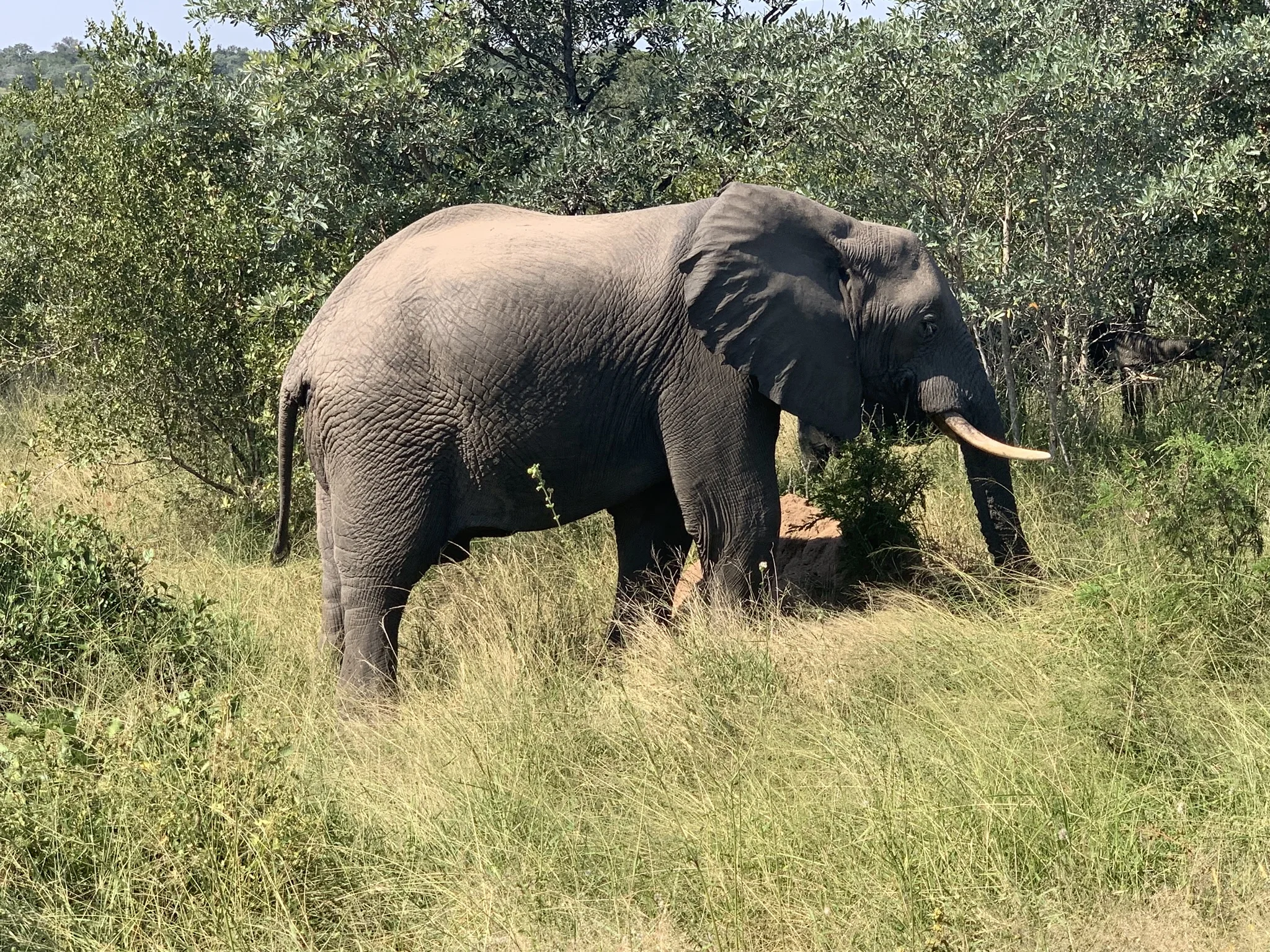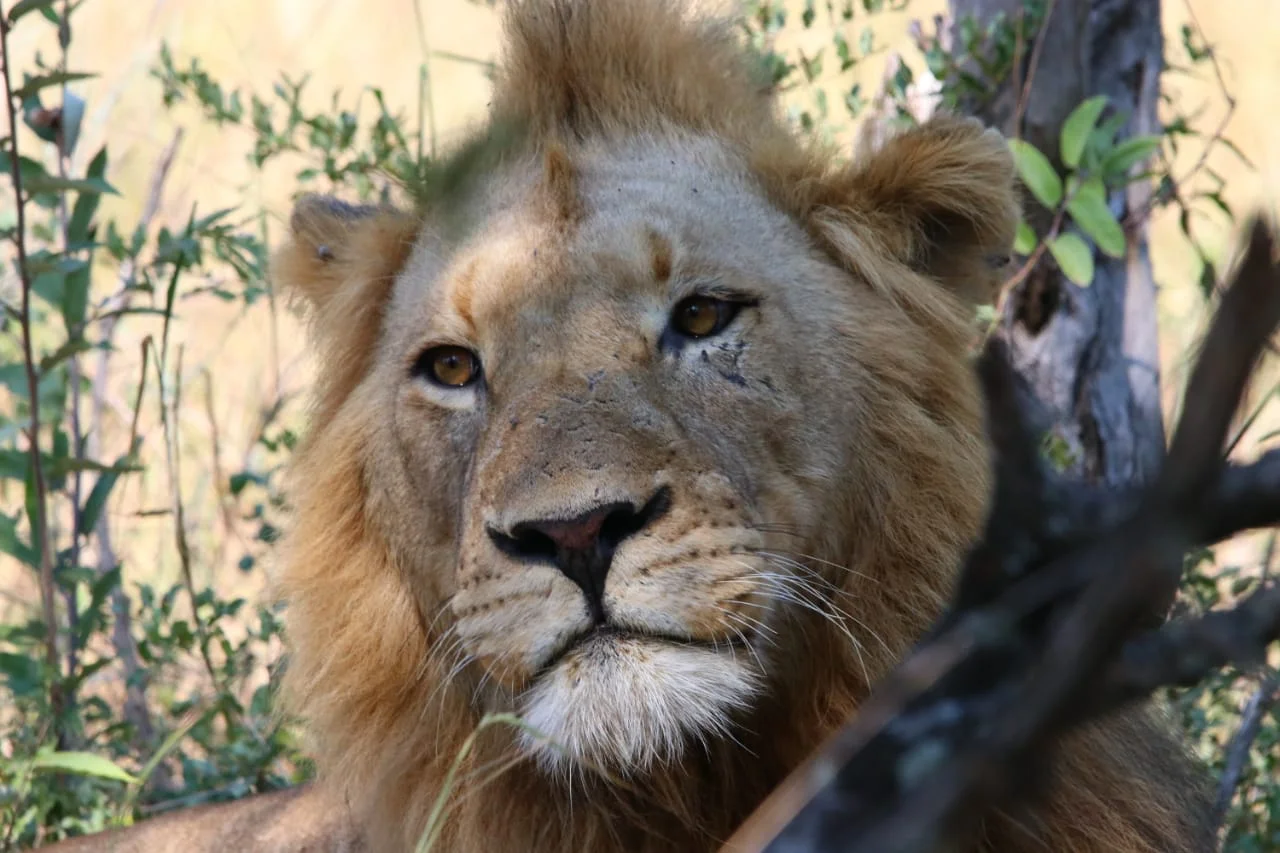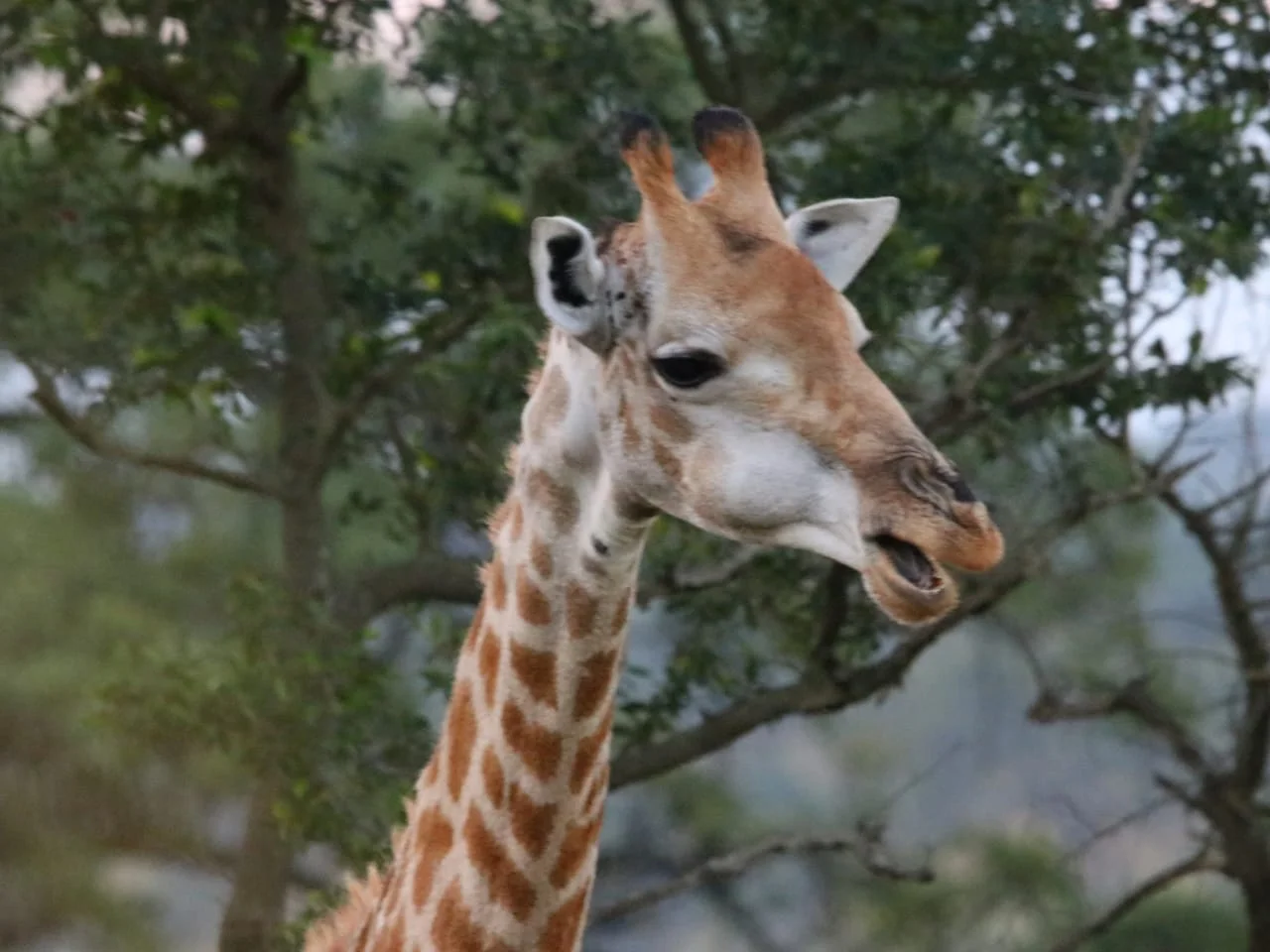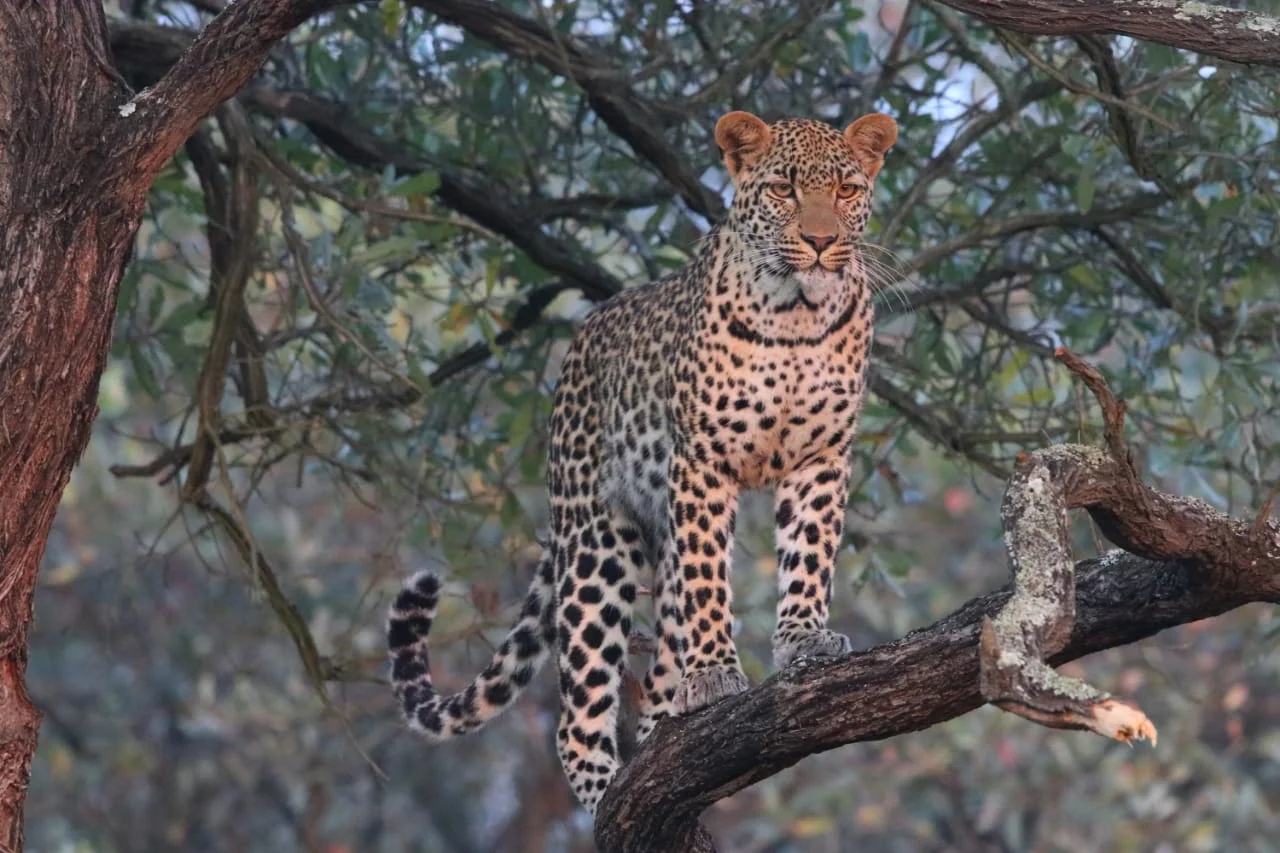Destruction of wildlife and habitat in Kruger
As Kruger is a National Park, the animals are protected, and it is illegal to hunt here. However, life is still very tough for the wildlife as their very existence is at risk from so many different areas.
Unfortunately, some of Kruger’s animal particularly Rhino are hunted and killed by poachers for their horns which some cultures believe that they have magical healing powers. Elephant can also be targeted for their beautiful ivory tusks. The poachers ingratiate themselves with the villagers, who are very poor, by building schools, bringing money into the area and providing jobs. They are therefore protected and sheltered by the villagers and it is difficult to get the villagers to turn against them. Amanda tells us that earlier this year the head of the poaching gang was captured by the park rangers after some rhino were killed. He was due to go to prison but the poachers and villagers created such an uproar threatening to burn the park if he was not released. They set fire to an area of the park and murdered two of the oldest male lions to show that they were serious.
This is a huge challenge for the authorities who are trying to educate the locals villagers about the importance of protecting the wildlife to ensure tourists come to the park. Sadly, whilst there is so much rural poverty a huge amount of work needs to be done to convince the villagers to turn their backs on the poachers and the revenue they bring to the area. And while this illegal trade continues incidents like the murder of the lions will continue to be difficult to prevent.
Kruger National Park borders on to Mozambique, Swaziland and Zimbabwe. There are no physical fences to allow animals such as the Wildebeest to follow their natural annual migration. However, this can also leave the big cats vulnerable. As the population grows, farmers venture further and further into the park with their livestock. Lions, leopards and cheetahs do not understand borders or the difference between livestock and their natural prey. Understandably the villagers want to protect their livestock and set traps to prevent them being attacked. Sadly as in the case of like in the Kenyan Leopard #Halftail the beautiful cats of Kruger fall foul of these traps which either kill or maim them and the Cheetah population is now less than 100 in the whole of the park.
It is not only the obvious threats from poachers or villagers which affect the wildlife population, but also the advancing threat of global warming. Amanda tells us that a few years ago there was a terrible drought in the Kruger. The waterhole we visited almost dried up resulting in no food for the hippos or water for their skin, leaving them starving, weak and easy prey for predators. She tells us that it was the worst drought since she has been guiding in Kruger and the heartbreak of watching so many animals die nearly made her leave the job she loves so much.
How can I help to halt the destruction of our global wildlife?
These are dreadful stories but sadly not unique to Kruger as hunting, destruction of natural habitats, global warming and plastic pollution are threatening the existence to wildlife both on land and in our oceans.
As individuals we may feel powerless to solve these issues but every little thing we do helps.
For example :
Making little changes such as not buying animal product souvenirs, taking care of the environment, switching off lights and unnecessary power to save energy and NEVER accepting a plastic bag or packaging
To slightly bigger things such as: carrying a coffee keep cup and bamboo straws everywhere you go and recycling your paper, plastics and cans. spreading the word about these issues on social media
To bigger things such as:
· Getting involved in an area clean-up to stop plastics entering our oceans
· Contributing financially to charitable organisations who protect wildlife – IFAW, WWF or volunteering for a local wildlife project or rescue centre
· Sponsoring an animal such as a lion, leopard, orangutan etc
. Petition your local politician to make changes to energy policies, improve recycling and ban single use plastics
If you care about saving our planet and it’s amazing wildlife, please get involved however you can to help protect these amazing creatures for future generations to enjoy.

